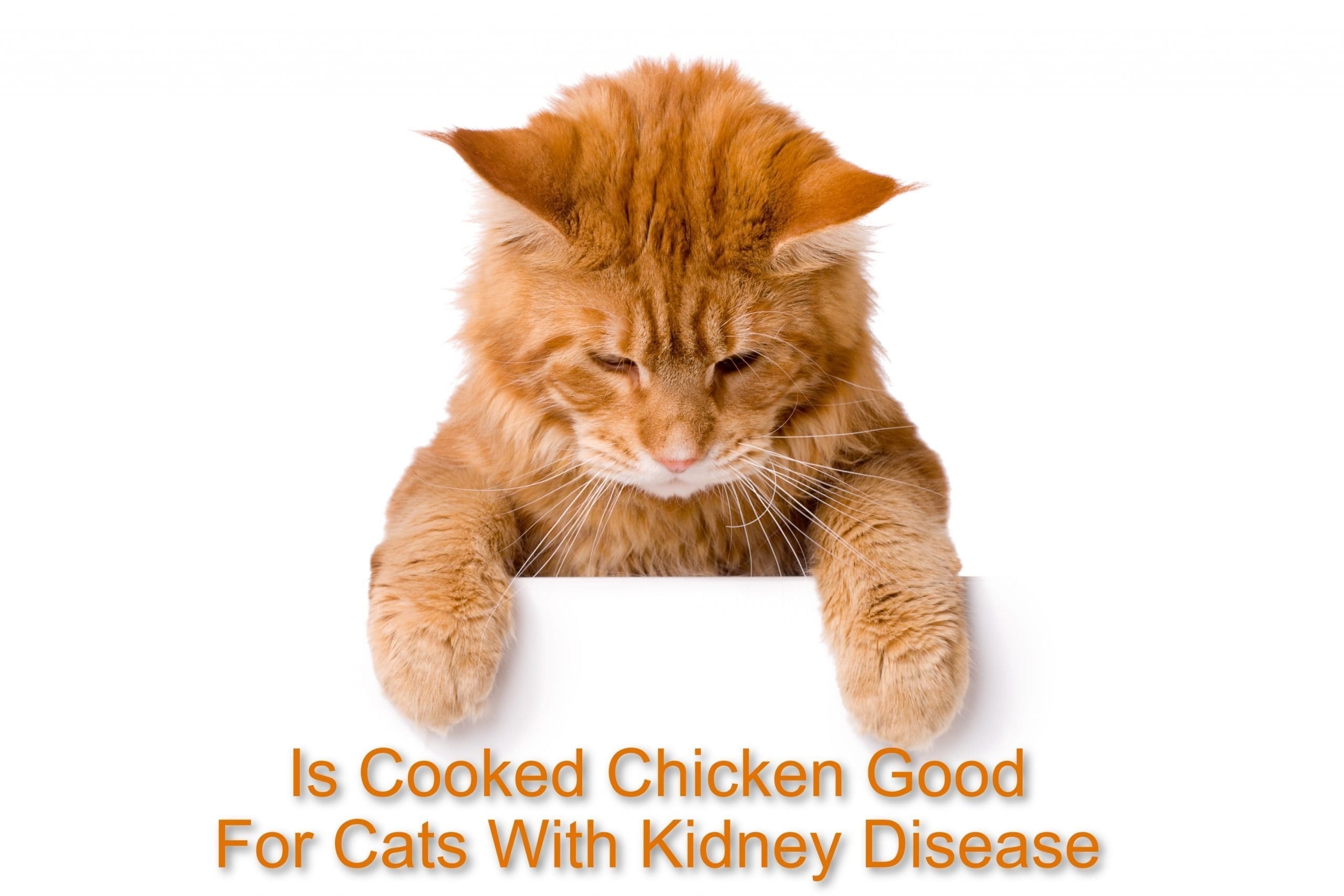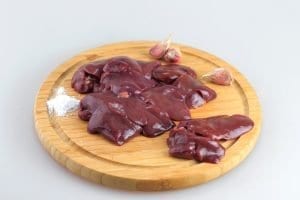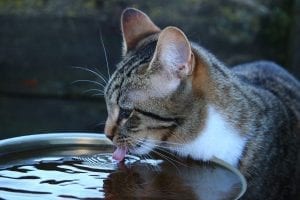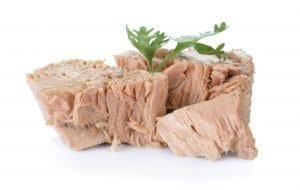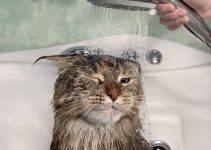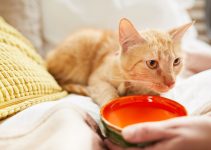As cat parents, we like to provide our cats with the best diets. They should be balanced, nutritious, and excellent protein sources. One of these sources is chicken. Chicken is an excellent meal for cats, and it provides an excellent healthy diet, with many benefits, whether it is cooked or raw chicken. However, there has always been a small disagreement about whether you should feed your cat raw or cooked chicken.
There are some unfortunate cases in which your cat suffers from a particular disease, for example, it has kidney disease. But what if your cat has kidney disease? Which kind of diet should it follow in that case? Should you feed it raw or cooked chicken? Is Cooked Chicken Good For Cats With kidney disease?
NOTE: We want to inform our blog readers that before we publish any article, the team “Proudcatowners” does deep research based on experience and knowledge about cats and everything related to them, to guarantees reliable and precise information, satisfy the readers is our first priority.
Is Cooked Chicken Good For Cats With Kidney Disease?
Cats are carnivores, therefore, meat is a massive part of their daily diet, including chicken. Cooked chicken makes an excellent treat for cats, as long as it doesn’t exceed 20% of their food. Feeding your cat cooked chicken on a regular basis has been strongly recommended by the Royal Society for the Prevention of Cruelty to Animals, however, the cooked chicken should not constitute the entire diet. An all chicken diet is highly advised against.
Benefits of feeding your cat cooked chicken
- It serves as an excellent treat for cats
- It is easy to digest
- It is delicious and preferable by cats
- It helps if your cat is recovering from illness or surgery
- Veterinarians advise feeding your cat cooked chicken in cases of loss of appetite or recovery
- Cooked chicken serves as an excellent treat
- Highly nutritious and rich in protein
How should I cook chicken before serving it to my cat?
Put the chicken in a pot and cover it with a sufficient quantity of liquid, it can be water or chicken broth. Cook the meat on medium-high heat for 20 minutes, until it is well done. You can know that by either measuring the chicken’s internal temperature (it should be 77°C) or by noticing the disappearance of pink color in the meat when you cut it.
Once the chicken is cooked, make sure you let it cool down first, because if you serve it hot to your cat, it might cause damage to their mouth especially.
In addition to that, shredding the cooked chicken before serving it to your cat is great, and it helps you notice if there are still any bones left in the chicken. Deboning the chicken before feeding it to your cat is highly recommended because feeding your cat in bone chicken can pose a danger to the cat and cause significant health problems.
Can I add other ingredients to the cooked chicken before serving it?
Adding cooked rice to your cat’s luxurious chicken treat is a positive thing, however, avoid adding anything that could be toxic to your cat, for example, onions or garlic.
How much protein should a cat with kidney disease have?
For cats with kidney disease, the amount of protein that is usually recommended is from 28% to 35%. The decreased level of protein intake in your cat’s diet helps with its kidney disease by slowing down and reducing the load of work on the kidneys. Another benefit of this is helping to minimize secondary kidney hyperparathyroidism.
If you are following a canned food diet for your cat, for example, there are suitable cat food for kidney disease that will help your cat adapt to its condition and improve it.
What is hyperparathyroidism?
Hyperparathyroidism is the segregation, elaboration, and release of parathyroid hormone. It is also referred to as PTH, and it is a consequence of chronic kidney failure or kidney disease.
The exact cause of secondary hyperparathyroidism is the lack of production of calcitriol, which is a kind of vitamin D that stimulates the absorption of calcium in the intestines, and resorption in the bones.
The lack of this vitamin leads to a deficiency in the effectiveness of parathyroid hormone in the process of assisting bone resorption. Another con of having low calcium levels is the increase of the parathyroid hormone level in the blood.
How can I know my cat has kidney disease?
There are several symptoms you can notice in your cat, which would indicate kidney disease they include the following:
- Frequent urination
- Increased thirst
- Consuming large quantities of water
- Traces of blood in the urine
- Diarrhea
- constipation
- Vomiting
- Weight loss
- Mouth ulcers and bad breath
- The cat’s tongue turns brownish
- Laziness, lack of activity, and increased sleeping time
What are the symptoms of hyperparathyroidism?
Most symptoms are related to the ones of kidney disease, but the most obvious ones are:
- Bone resorption
- Cat’s teeth become loose
- Rubber jaw condition, which is the softening of the cat’s lower jaw
Should I be worried?
If your cat displays the symptoms mentioned above, you must take it to the veterinarian as soon as possible. Kidney diseases are severe and have significant consequences on your cat’s health.
Boiled chicken for cats with kidney disease:
Many veterinarians would recommend boiled chicken breasts in case your cat is recovering from an illness or surgery. Boiled chicken breasts are bland, healthy, and easy to digest.
Boiling the chicken before feeding to your cat will help with the digestion process, and the smell would also attract your cat’s attention in case that cat is suffering from a loss of appetite.
Is chicken liver good for my cats with kidney disease?
Chicken liver is an excellent source of protein as well: however, too much of it can become very harmful to your pet’s health. It is okay to include only 5% of chicken liver into your cat’s diet, even less if your cat has kidney disease, and only once or twice per week.
In such cases where your cat has kidney disease, please consult your veterinarian about the amount of chicken liver to provide your cat with. Too much protein for a cat that has been diagnosed with such disease would make the case even worse. It would also contribute to the development of the illness. Feeding your cat too much chicken liver can also lead to vitamin A toxicity.
What is vitamin A toxicity?
Even though vitamin A contains essential antioxidants, and it is vital for cats for both their night vision and their healthy skin, as well as their immune system, it can still be toxic.
Vitamin A toxicity happens to cats between the age of 2 and 9 years old, and it usually occurs when the cat digests foods that are rich in vitamin A, such as liver, in substantial quantities or when providing your cat with too many vitamin A supplements.
What are the symptoms of vitamin A toxicity?
- Loss of appetite
- Weight loss
- Unhealthy skin (rough coat)
- An abnormal change in the cat’s sitting posture
- lethargy
- constipation
- Skin allergy (especially the limbs and neck)
what should I do?
Consulting a veterinarian is always necessary in case of any of these symptoms, ignoring hem can lead to aggravating the condition of the cat, therefore, risking its health. These symptoms can also indicate underlying disease and help in the early diagnosis and treatment of your cat.
Another point you should consider is your cat’s preference. Chicken livers are very palatable, and your cat can become addicted to it, thus, refusing any other type of food except that one.
Raw Vs. cooked chicken liver for cats
Chicken liver has significant benefits for cats, whether raw, cooked, served alone, or served mixed with other types of meat. Chicken liver contains many nutrients:
- Iron
- Copper (it helps form blood cells together with iron)
- Protein
- folic acid
- Vitamins A, B, C, and D
NOTE: Cooked chicken liver can be saved in the refrigerator for only 3 to 4 days.
Best food for cats with kidney failure
According to Amazon.com feline food ratings, and other pet food websites, these are the best-ranked cat foods for 2020, to give your cat if it suffers from kidney disease:
Hill’s prescription diet Adult-cat-food
The key features of this food are:
- Dried food
- low in protein (29% crude protein), phosphorus (0.75%), and sodium (0.29%), for the sake of kidney health
- rich in omega 3 and B vitamins
- delicious chicken flavor
Royal Canin Feline Renal Support F Dry
This product is ‘A’ formula, which would help in attracting the cat’s attention more, the essential features of this cat food are:
- Low level of phosphorus (0.57 %)
- Low level of protein (25%)
- Omega 3 acids that were added to help calm the inflammation of the urinary system (docosahexaenoic acids and eicosatetraenoic acids)
- Small kibbles with an aroma that attracts the cat’s attention, especially in cases of loss of appetite
Purina Pro Plan Adult Cat Dry Food for Kidney Disease
This product is known for having a great taste, and the key components are the following:
- Controlled sodium
- 5 % of crude protein
- 12% of moisture
- Maximum of 0.44 % of phosphorus
- Energy-dense for the needed calories
- Added vitamin B complex
- Added potassium
Hill’s Prescription Diet k/d Kidney Care with Chicken Canned Cat Food
This canned food contains a minimum of 6 % crude protein, a minimum of 4 % crude fat, and a maximum of 1.5 % crude fiber.
Blue Buffalo Natural Veterinary Diet Kidney
This food constitutes a balanced healthy diet, with significant benefits for cats and a delicious taste as well. The levels of each component are as follows:
- Minimum of 26 % of crude protein
- Maximum of 9 % of moisture
- Minimum of 18 % of crude fat
- Maximum of 0.7 % of phosphorus
- Maximum of 0.35 % of sodium
Purina Pro Plan Focus Urinary Tract Health Adult Wet Cat Food
This wet cat food is 100 % complete and provides balanced nutrition for the cat, and it is made with real salmon. It constitutes of the following components:
- Minimum of 10 % of crude protein
- Minimum of 6 % of crude fat
- Maximum of 78 % of moisture
- Maximum of 0.024 % of magnesium (it helps maintain the health of the cat’s urinary tract)
- Reduces urine pH
Food supplements for cats with kidney disease
Make sure you consult your veterinarian and get his approval before adding any of the following supplements to your cat’s diet:
Pet Wellbeing – Kidney Support Gold for Cats – Natural Support for Feline Kidney Health
Pet Wellbeing Thyroid Support Gold for Cats
Best home-cooked food for cats with kidney failure
According to the feline nutrition foundation, cats are carnivores, and they should be fed meat-based diets. However, in cases which your cat has kidney disease, some meats can be too high in phosphorus and could worsen your cat’s health. It is recommended to provide your cat with rabbit meat, hare, and poultry (chicken) since they are protein sources that are easy to digest.
The levels of each essential component proposed by VHC hospitals are as follows:
- Protein: level of protein should range from 28 % to 35 %
- Phosphorus: level of phosphorus should range from 0.3 % to 0.6 %
- Omega 3 fatty acids: Levels of omega 3 fatty acids should range from 0.4% to 2.5 %
- Sodium: Sodium levels should be less than 0.4 % or less.
You should consult your veterinarian in advance, and he will assist you in choosing the right formulation for your cat.
What is the best diet for a cat with kidney disease?
For cats with kidney disease, their kidney diet focuses mainly on reducing the amount of work that kidneys usually do to filter blood and remove waste. It consists of a low level of protein and a low level of phosphorus as well. According to veterinarians, the two most crucial elements in a cat’s diet if it has kidney disease are the following:
Make sure your cat gets large quantities of water:
Cats with kidney disease have greater risks of being dehydrated. Since the kidneys have a reduced ability to filter water in an adequate manner, it gets sent out directly as urine, therefore, causing dehydration in your cat because its body is not using the water, as it is being eliminated instantly.
Your cat’s diet for kidney disease, in this case, should consist of wet cat food, and a variety of raw servings, instead of purely dry food.
Reduced phosphorus consumption:
According to Tufts University’s Cummings Veterinary Medical Center, lower phosphorus intake contributes to slowing down the development of kidney disease for cats and delay its progression. The recommended amounts of a dry basis are limited to 0.3 % to 0.6 %. Lowering the phosphorus intake would automatically result in lowering the protein intake since these two are related.
Other components that should be considered in a cat’s diet when it comes to kidney disease are Omega 3 fatty acids, and sodium, which are both vital elements in reducing the workloads on the kidneys as well. Omega 3 fatty acid levels should not exceed 2.5 %, and the levels of sodium must not surpass 0.4 %.
Some people consider egg white as a good option too since it has a high protein low phosphorus combination, and it can make up for some meats in your cat’s kidney care homemade meals.
If my cat has kidney disease, can I still feed it tuna?
Even though canned tuna a low phosphorus meal, it should be an occasional treat. According to PetMED, canned tuna is an unhealthy choice of food for cats with kidney disease because it has high levels of mercury.
How to take care of a cat with kidney failure?
The most crucial thing to do when your cat has been diagnosed with kidney failure to check up with your vet regularly and put your cat under treatment. As for taking care of your cat at home, here some tips you can follow:
- Be careful with your cat’s diet. Make sure it is balanced, nutritious, and has regulated levels of protein, phosphorus, omega 3 fatty acids, and sodium.
- Provide your cat with access to water, and make sure it consumes a lot of fluids to avoid dehydration
- Choose high moisture foods to feed your cat
- Be punctual and careful with your cat’s medication for kidney failure
- Phosphorus binders can be very helpful in reducing the cat’s bloodstream absorption of phosphorus found in meals
- If your cat has nausea and refuses to it because of that, consult with your veterinarian and use anti-nausea medications
- Show your cat a lot of love and try to offer it as much comfort as you can.
What do specialists say about cooked chicken:
Many nutritionists and health specialists confirmed that cooked chicken is good for cats with kidney disease For a healthy and balanced diet of kidney care for sick cats, the protein, phosphorus, omega 3 fatty acids, and sodium levels, among other components, should be regulated in their meals. You must also make sure your cat is consuming large quantities of water to avoid dehydration.
NOTE: Cats are delicate creatures, as pet owners, we get worries quickly about them. If you see any abnormal symptoms on your cat, make sure you rush it to the veterinarian for a checkup. If your cat has an illness, an early diagnosis can be beneficial and would allow the faster beginning of treatment, therefore, more rapid recovery
Conclusion:
If your cat is diagnosed with kidney disease, beware of an underlying condition that could develop as well, such as hyperparathyroidism. Feeding cooked chicken to your cat is a healthy choice, as long as it is not a constant diet. Cooked, especially boiled chicken, serve as an excellent treat for cats, as it is easy to digest and rich in proteins.
Chicken liver is also an excellent addition to your cat’s diet, as long as you do not exceed the recommended portions. Many veterinarians confirmed the benefits of feeding your cat boiled chicken breasts since it is bland and easy to digest, as well as chicken liver, whether alone or mixed with other meats.
There are certain cat foods recommended for cats with kidney disease, as well as homemade kidney care diets, but always consult with your veterinarian before you commit to any diet or try offering your cat any new kind of food. Make sure you provide your cat with the proper care during this period of sickness and avoid any foods that might worsen its case.

